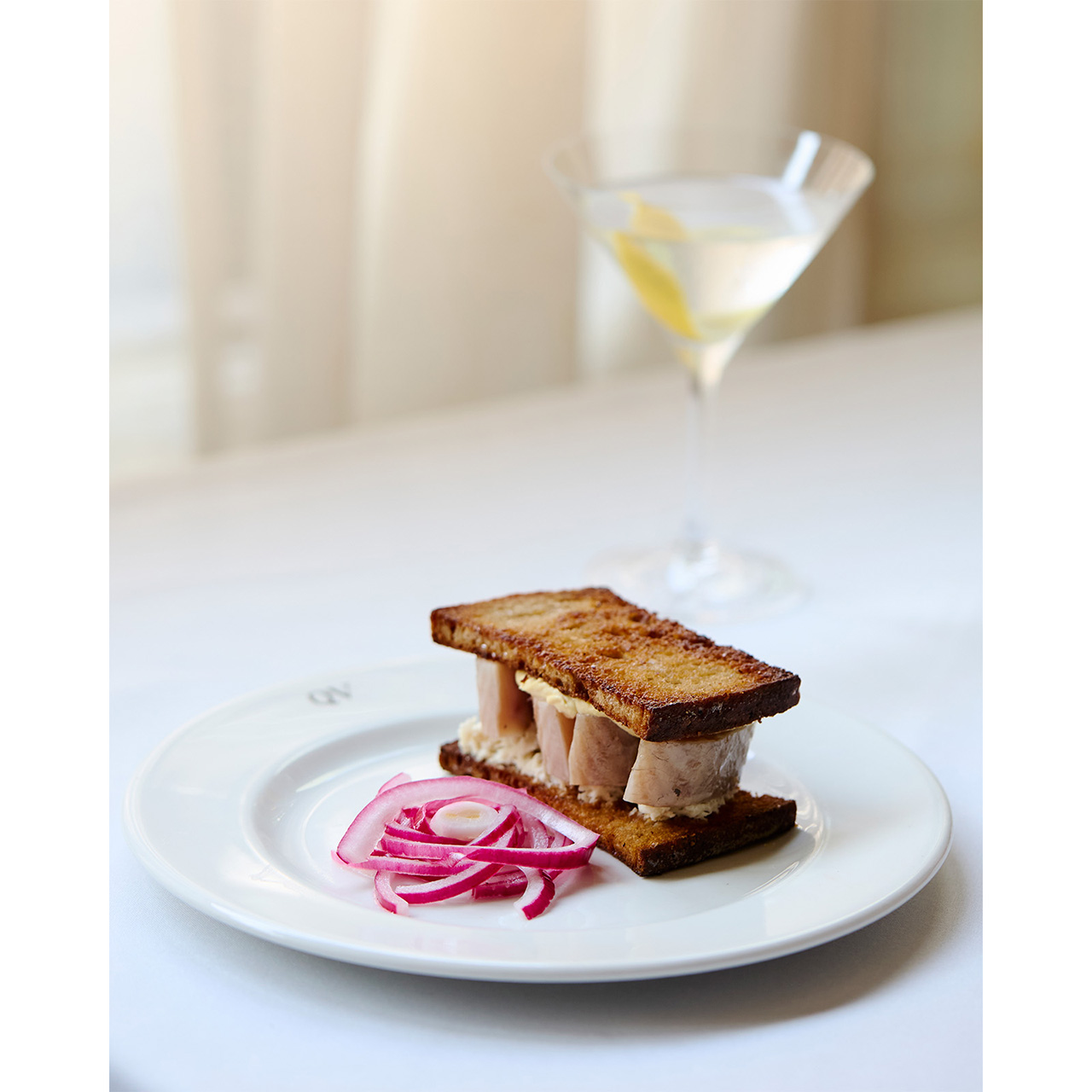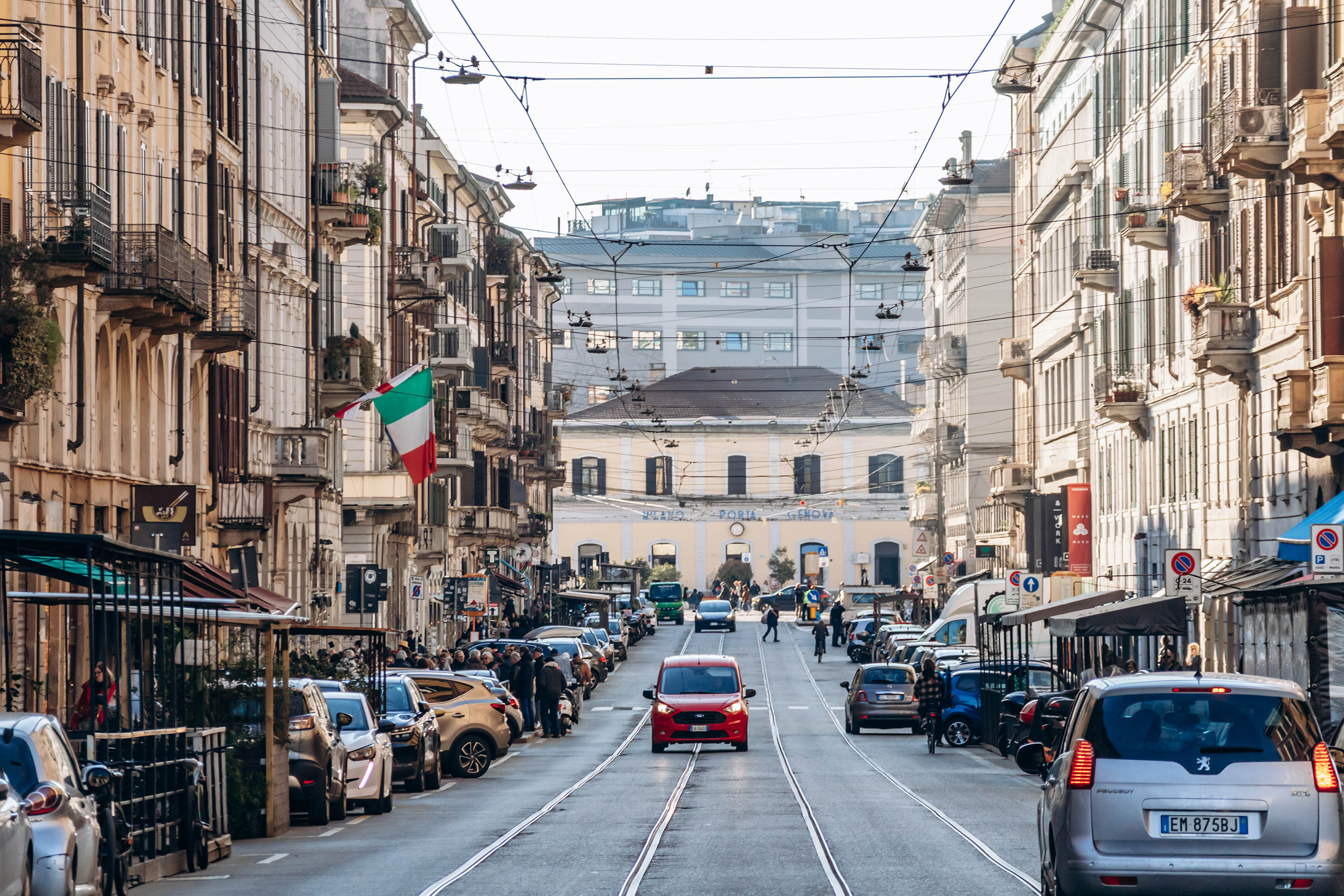The pitfalls of Trump’s ‘beautiful architecture’ mandate, a trip to Porto’s new tasting room and the Milan-based startup challenging Italy’s taxi lobby.
|
Monday 3/11/25
|

|
|
London
Paris
Zürich
Milan
Bangkok
Tokyo
Toronto
|
|
|
|

Good morning from Midori House. For more news and views, tune in to Monocle Radio. Here’s what’s coming up in today’s Monocle Minute:
THE OPINION: Novelty isn’t everything. Let us praise classic plates
IN PRINT: The pitfalls of Trump’s ‘beautiful architecture’ mandate
DAILY TREAT: A trip to Porto’s new tasting room
FROM MONOCLE.COM: Meet the Milan-based startup challenging Italy’s taxi lobby
|
|
In an industry with a novelty addiction, restaurants need to stick to the recipe
By Emily Bryce-Perkins
|
The first time I ate the smoked-eel sandwich at Quo Vadis I was alone and new to Soho. Tangy pink onions. The sharp slap of horseradish. And a buttery crunch, the kind that only exists when bread has been toasted in fat by a chef. You can order it late into the night and it pairs wonderfully with a martini.
The dish was created by Quo Vadis’s chef proprietor, Jeremy Lee, a man so jolly that one bite can summon him like a genie to greet you at your table. It’s said that on one unremarkable day in the mid-1990s, Lee had “a load of smoked eel and Poilâne sourdough to use up” and, well, that’s the whole story. Born out of thrift, perfected by repetition and still presented with panache, that sandwich has been on my mind since 2013, and Lee’s menus for some 30-odd years. First at Blueprint Café, the restaurant that he ran at the Design Museum, and now at Quo Vadis.

Toasting a great pairing: Quo Vadis’s smoked-eel sandwich
But the smoked-eel sandwich is a symbol of a greater culinary question: in an industry with a novelty addiction, how do we celebrate the magic of what’s already here? Getting people into new restaurants is easy: algorithms reward it, the media ranks it, diners chase it. The refrain of “Have you been to…?”is a daily din in my industry. Long-established restaurants are expected to reinvent themselves to stay relevant because diners are guilty of treating old favourites like old lovers: fondly remembered, rarely visited.
And yet, many of London’s most beloved restaurants and dishes aren’t new at all. The steak haché at Brasserie Zédel, the fish-sauce chilli wings at Smoking Goat, the curry udon at Koya – none of them have really changed. They have simply remained excellent. Returning to them is akin to revisiting a favourite book: taking pleasure in familiar beats or perhaps introducing someone to them.
What if the shortcut to joy isn’t constant change but repetition? Dishes needn’t be about surprise so much as return. The smoked-eel sandwich hasn’t changed much since the 1990s and nor should it. Its power lies in its delicious consistency: the joy of knowing exactly what’s coming and being transported back to that first bite. Of course, restaurants must evolve, whether through sustainability, provenance or sheer creativity. But there’s a difference between evolution and panic reinvention. Not everything has to be a debut.
Perhaps the trick – for diners and creators alike – is to resist the reflex to chase the new for its own sake. To be confident and let the classics shine. Because sometimes, what we need isn’t the next big thing but the same crunchy, horseradish-laced sandwich that has been waiting at the bar all along. Martini in company. As perfect as ever.
Emily Bryce-Perkins is a London-based writer. In London and in need of a few suggestions? Be sure to consult Monocle’s City Guide. For more opinion, analysis and insight, subscribe to Monocle today.
|
|
in print: urbanism
Donald Trump’s ‘beautiful architecture’ mandate could make Washington look worse
In August the US president, Donald Trump, signed an executive order titled Making Federal Architecture Beautiful Again (writes Sam Lubell). He declared that future federal buildings nationwide, from courthouses to office blocks, must employ and be built in approved historical styles. From now on in Washington, the default language of public architecture will be classical, unless an exception can be justified.

Classical crass: How will Trump’s taste marry with traditional design?
While Trump’s taste has often been called into question, this move, which solidifies an order issued in the final weeks of his first presidency, shows that he’s well aware of the capacity of architecture to unite, divide, project power and create a link to an imagined past.
For more on how classic architecture’s colonnades, cornicing and corbels carry the weight of authority, click here. Or pick up a copy of Monocle’s November issue.
|
|
• • • • • DAILY TREAT • • • • •
A trip to Porto’s new tasting room
Porto’s links with the wine trade are well known but difficult to see unless you know where to look. Most of the coastal city’s ageing cellars are far from downtown on the south bank of the Douro. But now one producer is bringing its winery to the city centre.
The British-Portuguese Symingtons are fifth-generation producers of port. This year the family unveiled Matriarca, which occupies a renovated townhouse with a tasting room and cellar shop. Inspired by private clubs, patrons can attend masterclasses, sample vintages from the Symingtons’ vineyards or pop in for some red mullet or monkfish, prepared by chef Pedro Lencastre Monteiro.
matriarca.pt
|
|
FROM MONOCLE.COM: italy
Leading the Wayla: Meet the Milan-based startup challenging Italy’s taxi lobby
Italians are addicted to their cars (writes Ed Stocker). In fact, the bel paese has among the highest car ownership in Europe, ranking just behind Poland and Luxembourg, according to the European Automobile Manufacturers’ Association. All of which makes it difficult for a new mobility player to break into a market so attached to their precious vehicles.

Buckle up: Bustling street in the Navigli district of Milan
But that’s not the only problem. Italy hasn’t always welcomed mobility upstarts with open arms. With taxi licenses tightly controlled, Euractiv has described the country’s taxi lobby as “mafia-like”. Foreign players such as Uber and Bolt have struggled to gain ground due to stringent regulations. The former only operates its premium Black service in Milan and Rome, and it costs more than a conventional taxi.
Despite the challenging environment, it’s clear that Italy needs more services that provide affordable, viable alternatives to private cars. A flexible service that arrives directly to a user could be key in a nation with a rapidly ageing, less mobile population. That’s where Wayla, a point-to-point van ride-sharing service, comes in.
For more, read the piece in full here.
|
|
Monocle Radio: THE STACK
‘M International’: When a French legacy title publishes in English, plus the launch of ‘Equator’
We speak with Marie-Pierre Lannelongue, editorial director of M Le magazine du Monde on the third issue of M International. Plus: Gavin Jacobson and Samanth Subramanian from the newly released Equator, a title taking a less Anglophone West-centric look at the world.

|
|
Newsletter:
Join us
Welcome to our world
Has this been forwarded to you
by a friend? Sign up to The
Monocle Minute and Monocle
Weekend Editions to receive your
own bulletin of weekday news and
weekend treats.
| | |